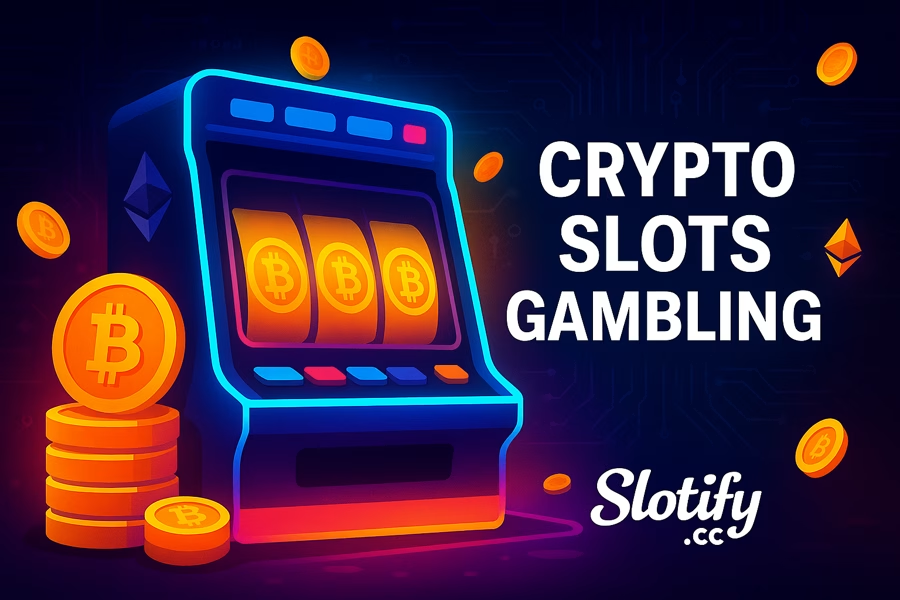
Crypto slots gambling is a growing trend in the European online gambling scene. It replaces traditional payment methods with digital currencies and offers a new level of speed, privacy, and access to players across jurisdictions. This article explains how it works, why it appeals to experienced gamblers, and what makes it different from fiat-based casinos. While players in the UK, France, and Spain face more restrictions, many European markets allow greater freedom, especially when it comes to decentralised platforms and blockchain-based casinos.
At its core, crypto slots gambling is not just about using digital coins. It’s a shift in infrastructure and philosophy. It creates a direct connection between player and platform without relying on third-party banks or slow financial networks. Transactions happen on the blockchain. The result is faster cashouts, increased transparency, and reduced entry barriers. This appeals to users looking for both privacy and control.
The Structure of Crypto Slot Play
In a standard crypto casino, players deposit funds via a supported cryptocurrency wallet. These funds are then used to place bets on traditional or blockchain-based slot games. The games themselves may look similar to their fiat equivalents, but the backend differs. Transactions are confirmed on-chain, and provably fair technology is often included. This lets players independently verify the randomness of each result. It’s not just a claim of fairness, but a system built for proof. In crypto slots gambling, this aspect is not optional; it is a foundation.
Crypto slots can be built with varying volatility and RTP. Most top crypto platforms offer games developed by well-known providers alongside blockchain-native titles. While the visual presentation remains consistent with modern HTML5 slots, the operational layer enables anonymous accounts, low-fee withdrawals, and direct value exchange without involving fiat currencies.
Why Speed and Access Matter in Crypto Gambling
One of the most appealing aspects of crypto slots gambling is transaction speed. Deposits usually clear in minutes, while withdrawals often require no manual approval. This is in contrast to traditional online casinos, which may impose withdrawal limits, require ID verification, and delay payments by days. For European players who want immediate access to winnings, this difference is substantial.
In addition to speed, there’s the question of access. Crypto casinos often operate in jurisdictions where regulations are lighter or blockchain is explicitly allowed. This lets players from countries with banking restrictions or strict gambling laws participate without compromising legal or financial risk. It also allows the operator to avoid reliance on conventional merchant systems, card processors, and KYC overheads.
The Privacy Advantage
Privacy is another reason many gamblers are turning to crypto slots. Traditional online casinos require detailed verification documents and personal data storage. These are often subject to leaks, breaches, or misuse. In contrast, crypto platforms may require only an email address and wallet connection. For users concerned about data exposure or surveillance, this provides a strong incentive to migrate.
Anonymity in crypto slots gambling does not mean less security. Blockchain wallets are protected by cryptographic keys, and leading crypto casinos use cold storage and smart contracts to separate player balances from operational funds. Combined, this system reduces the chances of both external fraud and internal abuse.
Risks and Considerations
Crypto slots gambling is not without risks. Cryptocurrency volatility can affect bankroll value dramatically, especially during longer gaming sessions. A win in Bitcoin may lose value by the time it is cashed out. In reverse, it can increase as well. This introduces an element of market timing to the experience. Players must be aware that gambling outcomes and asset values are not linked but can influence perception of value.
Another concern is the regulatory grey zone. While many European countries have no formal ban on crypto casinos, they may not provide protections for disputes or financial recovery. Without licensing in familiar jurisdictions, players must vet platforms carefully. The decentralised model offers freedom, but it also places responsibility on the user to evaluate fairness, liquidity, and safety. This makes due diligence essential.
Comparing Crypto Slots to Traditional Slots
Traditional online casinos are regulated, established, and trusted by a large portion of European gamblers. They offer fiat currency convenience and customer support, but they also require identity verification, may restrict winnings, and generally process payments more slowly. Bonuses often come with strict wagering requirements and limited withdrawal flexibility.
Crypto slots provide faster access, lower fees, and more privacy, but may lack the legal guarantees and support structures of traditional platforms. They reward autonomy and can offer larger returns, especially in decentralised game ecosystems. However, they demand greater understanding and technical confidence from the user.
The core experience of spinning reels and chasing big wins remains the same. The real difference is in how the system is built, how the rewards are managed, and how much control the player has over their funds.
The Future of Crypto Slots Gambling in Europe
As blockchain adoption grows, crypto slots gambling is likely to expand. Already, new platforms are emerging that support multi-chain payments, NFT slot machines, and decentralised jackpots. Game developers are adapting too, offering hybrid slots that work with fiat and crypto, and enabling bonus mechanics that reward both gameplay and token loyalty.
In jurisdictions like Germany, Switzerland, and parts of Eastern Europe, players are experimenting with crypto gambling as a long-term alternative to classic casino models. This shift is slow but steady. Regulatory frameworks will likely tighten, but not prohibitively. As European authorities catch up with technology, clarity will improve — which will ultimately benefit both operators and players.
Until then, the most informed players will continue to lead adoption. Crypto slots gambling appeals most to those who value speed, privacy, and decentralisation — and who understand the tradeoffs involved.
Closing Thoughts
Crypto slots gambling is not a passing trend. It is a functional, tested model that offers real benefits to European players. While not perfect, it solves many issues associated with traditional online casinos — from delays and fees to privacy and verification. With the right tools, and a responsible approach, it opens new opportunities for users seeking full control over their gaming experience.









